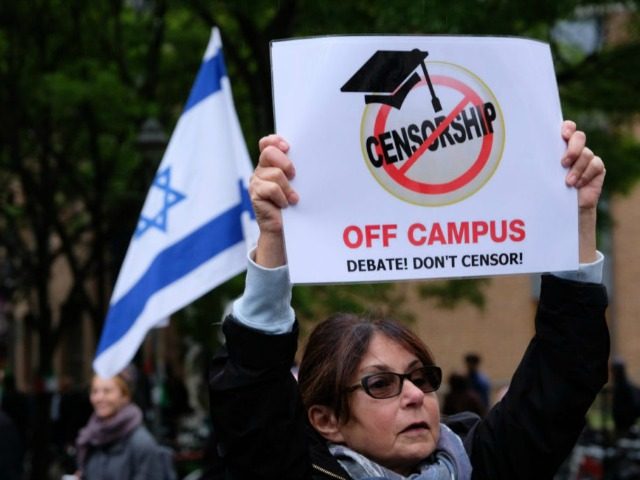The American Association of University Professors (AAUP) criticized University of Michigan professor John Cheney-Lippold for refusing to write a recommendation letter for a student hoping to study abroad in Israel.
Professor John Cheney-Lippold of the University of Michigan faced backlash this week after it was revealed that he refused to write a letter of recommendation for a student seeking to study abroad in Israel.
“I am very sorry, but I only scanned your first email a couple weeks ago and missed out on a key detail,” he wrote in his email to the student. “As you may know, many university departments have pledged an academic boycott against Israel in support of Palestinians living in Palestine. This boycott includes writing letters of recommendation for students planning to study there.”
Now, a statement from a leader of the American Association of Professors subtly suggests that Cheney-Lippold discriminated against the students on the basis of his own political beliefs. Hans-Joerg Tiede, the associate secretary of the AAUP’s Department of Academic Freedom, Tenure and Governance, suggested in a statement to Inside Higher Ed that Cheney-Lippold’s conduct violates the AAUP’s statement on professional ethics.
“In general, AAUP policy does not address whether faculty are obligated to write letters of reference,” Tiede said. “I think that it’s generally understood that writing such letters falls within the professional duties of faculty members. I also think that it’s generally understood that faculty members may decline to write a particular letter in particular instances, for example, because they believe that they have insufficient information on which to base such a letter. In general, refusing to write a letter of reference on grounds that are discriminatory would appear to be at odds with the AAUP’s Statement on Professional Ethics.”
John K. Wilson, the co-editor of the AAUP’s blog, added to the conversation, offering a nuanced perspective on the issue. “Writing a letter of recommendation is not like teaching a class; it is a voluntary activity, and not a necessary part of one’s academic work,” Wilson argued. “Professors are given broad discretion to decide how, and if, to write a letter. And they can decline if they think the opportunity is not in the best interests of the student, even if the student disagrees.”
Wilson went on to say that professors should not use their political views to determine whether or not they will write a letter of recommendation. “However, I think it is morally wrong for professors to impose their political views on student letters of recommendation,” he added. “If a professor was systematically refusing to write letters of recommendation because they are time-consuming and unrewarded in academia, it might be appropriate for colleagues to judge it as a small mark against them on the service criterion. But a singular case like this certainly should not be punished in any way.”
Despite the backlash, Cheney-Lippold has yet to back down. “I firmly stand by the decision because I stand against inequality, I stand against oppression and occupation, I stand against apartheid and I use that word very, very seriously,” Cheney-Lippold said in a comment.
The University of Michigan spoke out against Cheney-Lippold, arguing that he allowed his own personal biases to inappropriately interfere with his duties to his students. “Injecting personal politics into a decision regarding support for our students is counter to our values and expectations as an institution,” the university said in their statement.

COMMENTS
Please let us know if you're having issues with commenting.